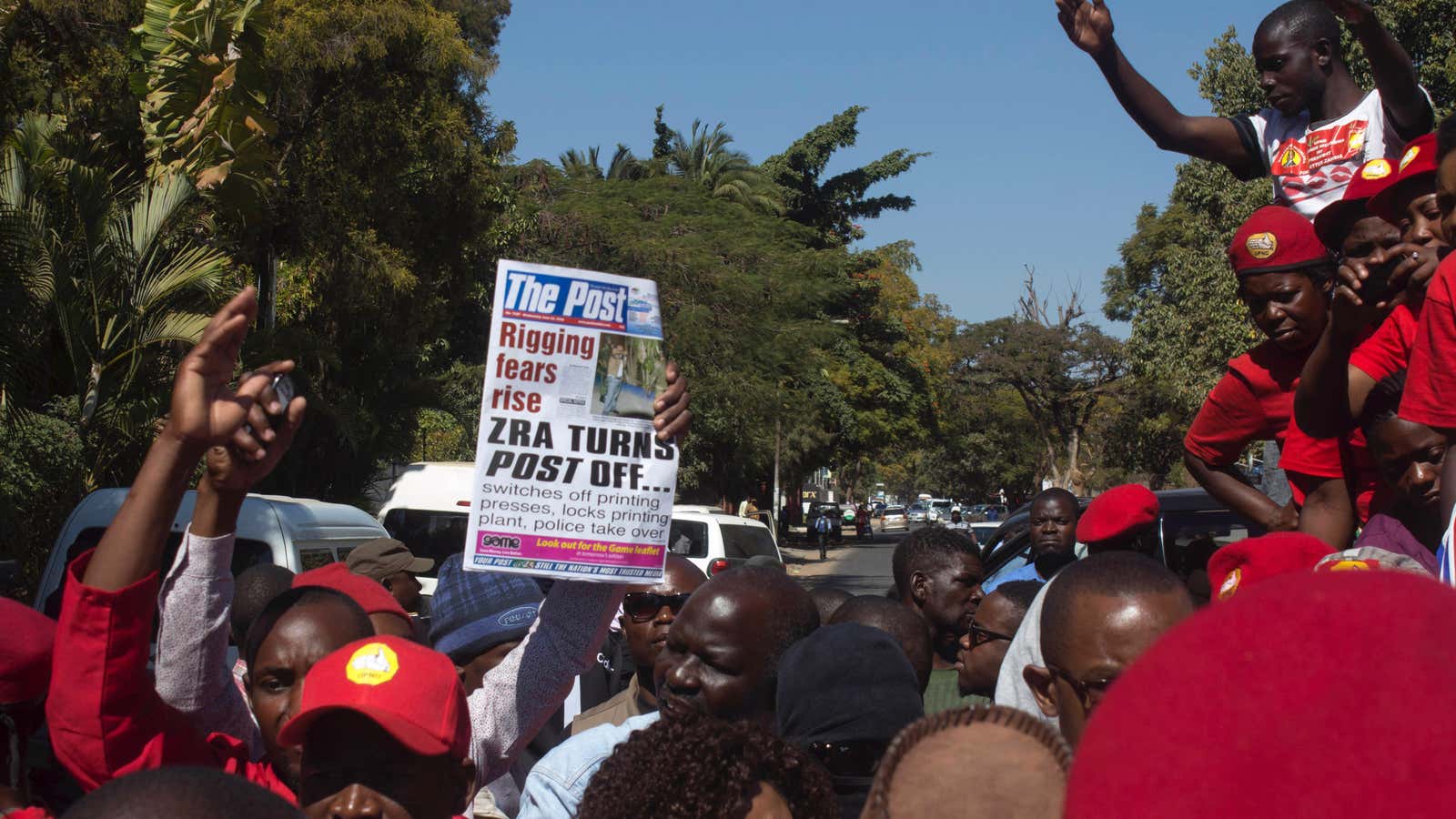Zambia’s largest independent newspaper, the Post, has been shut down over a dispute with the country’s tax authority. Critics say it’s a ploy to silence the newspaper ahead of the August 11 general election.
Last week, the Zambia Revenue Authority seized the newspaper’s assets, demanding $6 million in unpaid taxes. On Tuesday (June 28), police arrested the newspaper’s owner and editor-in-chief Fred M’membe, his wife Mutinta and the newspaper’s deputy editor, Joseph Mwenda, Reuters reported.
The three had entered the newspaper’s office, after receiving a court interdict that would allow them to resume working, managing editor Joan Chirwa told Reuters. Police refused to recognize the interdict, saying it had to be signed by the revenue service.
The Post had been publishing from a secret location since its offices were closed. M’membe did not dispute that the paper owed outstanding taxes, but said shutting down the paper over a financial dispute was a means to silence it. The paper has been consistently critical of President Edgar Lungu, who took over after the death of President Michael Sata in 2014, and hopes to win the upcoming election.
“They have seized our printing facilities, they have seized our editorial offices and they have even garnished our bank accounts. But there is no law that stops us from publishing,” M’membe said before his arrest, according news website News24.
Diplomats from the U.S. and Europe have criticised the decision to shut the newspaper, AFP reported.
“Freedom of the press is a key component of democracy and it is important for your elections,” visiting U.S. Assistant Secretary of State for African Affairs Linda Thomas-Greenfield said during a public discussion, adding that the parties should have worked out a payment arrangement. Rights group Amnesty International said shutting down an independent newspaper in the run-up to an election was “an affront to media freedom.”
“The decision by the Zambia Revenue Authority to take over assets of the Post newspaper was indeed an independent action to recover tax debt,” Lungu said, defending the paper’s closure in an address to diplomats. “Some of you are saying that the timing of the court’s decision is awkward. Tell me when is the right time to do this?”
Lungu’s strongest challenger, Hakainde Hichilema of the United Party for National Development, also accused the president of using the state to limit his campaigning, an accusation Lungu’s camp denies.
Some Zambians protested in the capital Lusaka against the 25-year-old newspaper’s closure, according to the Associated Press. On Twitter, many saw the newspaper’s shutdown as a worrying sign ahead of the election in this usually stable democracy. Zambia ranks 114th out of 180 countries on Reporters Without Borders’ 2016 World Press Freedom Index.
